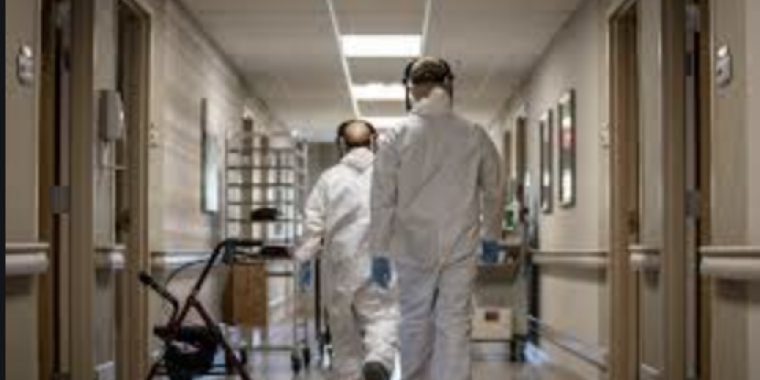
Adult Care Providers Need Increased State Support During COVID-19 Pandemic
June 12, 2020

_______________
Honorable Andrew M. Cuomo
Governor of New York State
Executive Chamber
State Capitol
Albany, NY 12224
Dear Governor Cuomo,
We are writing to recommend strategies to address some of the vulnerabilities exposed during the COVID-19 crisis at adult care facilities, including nursing homes, adult homes and assisted living facilities. We support your administration’s mandate to test nursing home and other adult care facility staff once a week, and believe this will help control the virus more effectively at adult care facilities. We ask that the Department of Health use existing resources, wherever possible, to assist facilities with the increased costs stemming from additional requirements resulting from the public health crisis. After conferring with AARP NYS, and other organizations, we would like to include additional recommendations designed to protect the most vulnerable New Yorkers, those that care for them, and the communities where they live.
The recommendations are as follows:
1. In addition to mandating testing for Nursing Homes, and Adult Care Facilities (ACF) once a week, require Home Care Providers to also be tested once a week, and require complete testing of all Nursing Home, ACF and Home Care staff and residents when outbreaks occur, as well as contact tracing procedures when a positive result is discovered.
2. Provide daily public updates on the number of confirmed cases of COVID-19 in residents and staff with the percentage of infection in each category, deaths in the facility, and death of residents transferred to hospitals by facility, and by county.
3. Require facilities to report the above information through electronic means or otherwise to family members and legal guardians in a way best suited to reach them, as well as to the Long Term Care Ombudsmen’s Program (LTCOP), including the LTCOP with responsibility for the facility.
4. Establish a SWAT team to provide immediate assistance to help facilities to support and protect residents and staff when the infection rate hits a DOH-established metric, or when there is a significant increase in complaints.
5. Deploy qualified people back into facilities to do the important work of LTCOP volunteers while they are unable to physically enter facilities. Allow DOH inspections teams back into facilities to conduct needed inspections beyond those that constitute immediate jeopardy. Provide PPE to those who are entering facilities for these purposes. Furthermore, the DOH should reevaluate its entire nursing home inspection system.
6. Require all Nursing Homes and ACFs to report to DOH daily staffing levels, and if staffing levels fall below a metric determined by DOH, prohibit the Nursing Home or ACF from accepting new residents.
7. Require DOH to establish a protocol to enable residents to leave the nursing home during a pandemic, and require DOH to establish a protocol for residents’ return. Bedhold fees to be paid by residents or their families must be waived for the duration of the declared state of emergency.
8. Require each nursing home to employ a qualified, full-time infection preventionist throughout the COVID-19 crisis. Require adult care facilities to, at a minimum, immediately consult with an infection control preventionist to plan and implement an infection control plan.
9. Require the DOH and State Office for the Aging, in consultation with experts in long-term care representing facilities and consumers, to create a reimagining plan for future pandemics similar to plans to be made for hospitals, and to address underlying vulnerabilities exposed by the crisis to reexamine staffing levels, infection prevention, inspections protocols, and the impact of such protocols on resident mental health and well-being.
We are also supportive of legislative action to repeal Article 30-D of the Public Health Law, also known as the Emergency or Disaster Treatment Protection Act, which would reverse the immunity granted to nursing homes for treating COVID-19 patients.
We believe that these recommendations will address many of the dangerous conditions in nursing homes and other adult care facilities during the COVID-19 crises by providing adequate staffing, testing resources, and proper infection protocols. Some of the protocols may result in increased cost burdens on nursing homes and home care providers, many of which are already struggling financially. We urge the State to provide the equipment and testing to these facilities, where feasible, based on need.
The Legislature intends to hold joint public hearings on this matter to hear from stakeholders and explore what additional steps can be taken to improve the outcomes and experiences of long-term care patients, families, caregivers and providers. Thank you for considering these recommendations, which will help to keep many older and other vulnerable New Yorkers safe, along with those who care for them.
Sincerely,
Liz Krueger
State Senator
Gustavo Rivera
State Senator
Rachel May
State Senator
John Liu
State Senator
Julia Salazar
State Senator
Pete Harckham
State Senator
James Sanders, Jr.
State Senator
Kevin Thomas
State Senator
Alessandra Biaggi
State Senator
Roxanne Persaud
State Senator
Andrew Gounardes
State Senator
Shelley Mayer
State Senator
Jessica Ramos
State Senator
Joe Addabbo, Jr.
State Senator
Jen Metzger
State Senator
Kevin Parker
State Senator
Robert Jackson
State Senator
Anna Kaplan
State Senator
Brian Kavanagh
State Senator
Neil Breslin
State Senator
Share this Article or Press Release
Newsroom
Go to Newsroom


